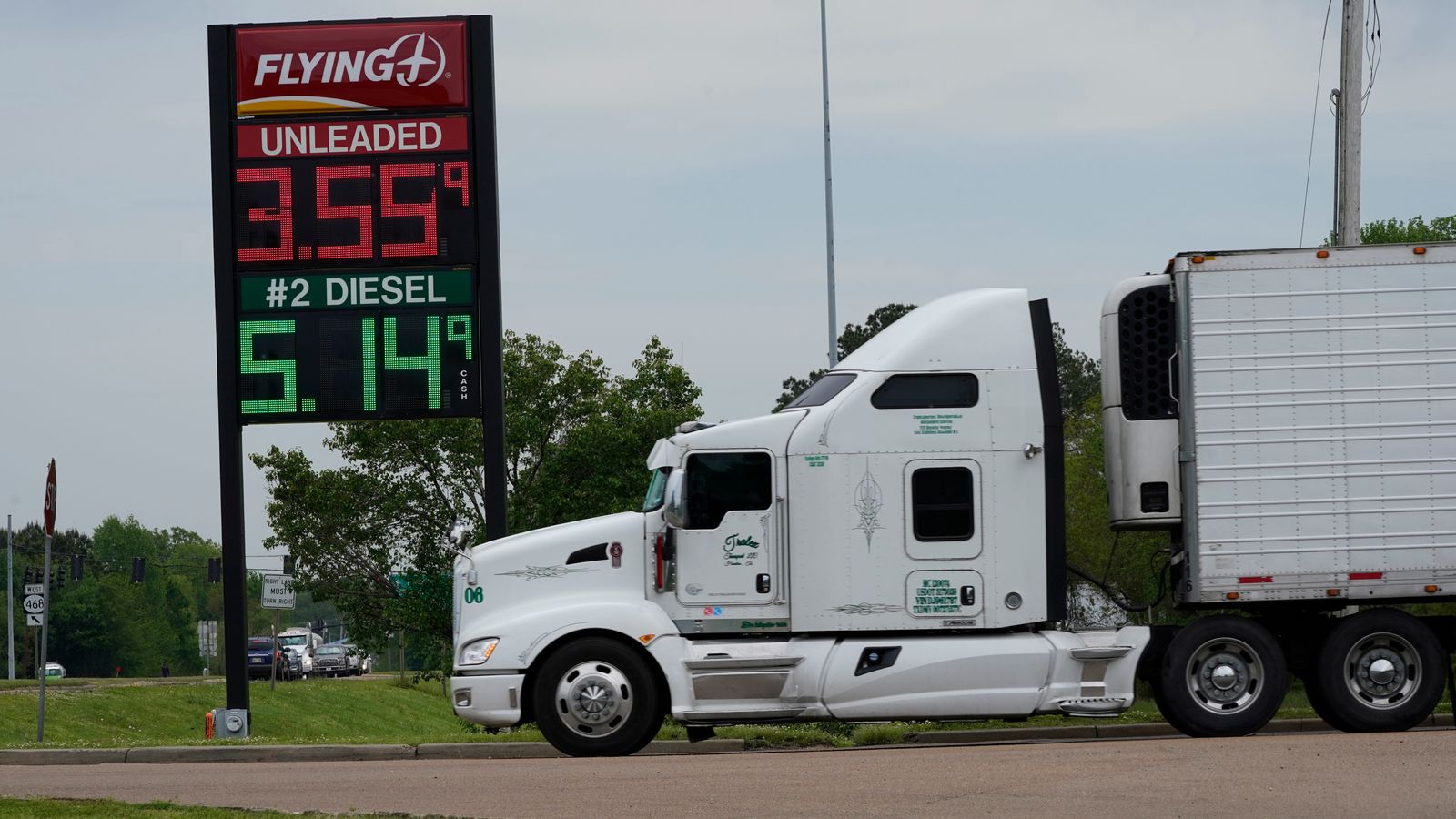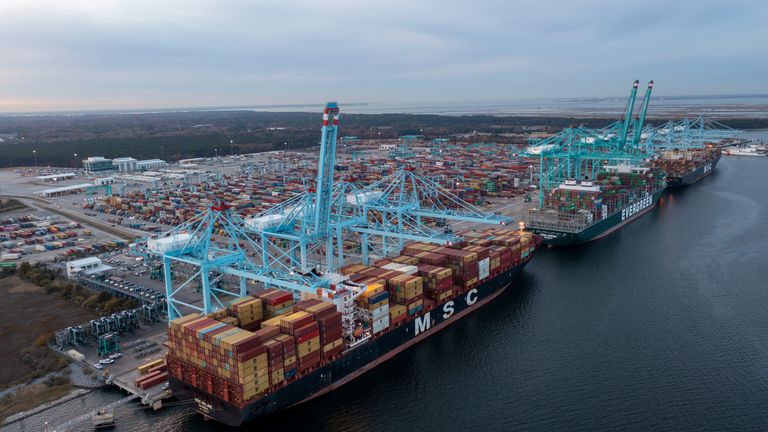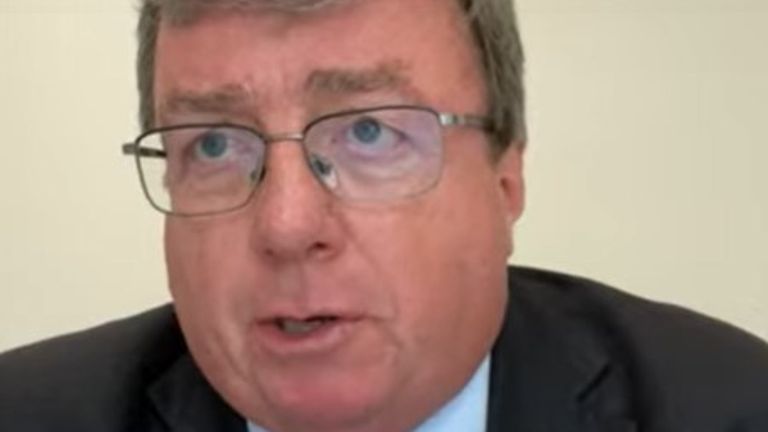The US economy found a reverse gear during the first three months of the year, according to early official data which had been expected to show a much softer slowdown for growth.
The commerce department’s first estimate for January to March gross domestic product (GDP) showed an annual rate contraction of 1.4%.
Economists had predicted growth of 1.1% – down from the 6.9% annual rate witnessed in the final three months of 2021.
The world’s largest economy had been predicted to feel the impact of surging inflation, witnessed even before Russia’s tanks rolled into Ukraine in late February.
However, the data showed that spending by consumers and businesses remained buoyant over the quarter despite the price pressure caused, largely, by rising oil prices.
Consumer expenditures rose 2.7% amid a 7.8% increase in prices over the quarter.
The department said that the main factor behind the contraction was a slower restocking of goods in stores and warehouses – a consequence of the COVID-linked global supply disruption – and by a sharp drop in exports.
The figures raised fears about the growing threat of a recession as trade between the US and China remains hampered by the latter’s battle against the pandemic which has knocked orders and delayed shipping, particularly out of Shanghai.
This as the effects of Russia’s actions, including sanctions slapped on Moscow in retaliation for its invasion, also continue to add inflationary pressure and threaten spending power.
However, financial analysts and economists remain convinced that despite the economic slowdown, the US Federal Reserve remains on course to raise interest rates by 0.5% next week to help tackle the inflation problem.
That is because the US job market has remained resilient in the face of the troubles – with an unemployment rate of just 3.6%.
Strong wage growth, a consequence of corporate retention policies to combat labour shortages, has been credited with keeping consumer spending stable despite rising bills.
Fed chair Jerome Powell has signalled that two further 0.5% rate hikes could take place before the year’s end, betting that inflation can be tamed to some degree without causing a recession.


